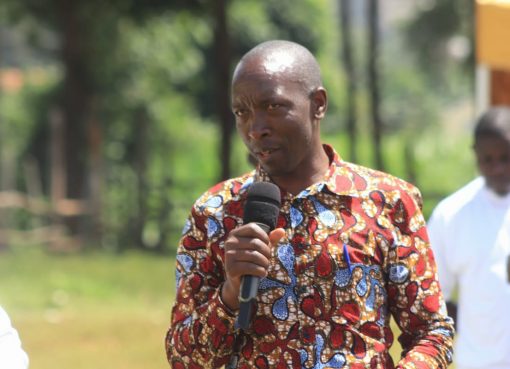Chief of Staff and Head of the Public Service Mr. Felix Koskei has urged Human Resource (HR) professionals in Government to design appropriate delivery mechanisms that recognizes the ever-changing worker and customer relations, while still guarding against creating institutional tensions or disrupting the existing order.
Koskei said the public sect-or HR professionals are guardians of a system that is well-organized in operations and culture where hierarchy, order of precedence, seniority, formality, and dispassion are entrenched characteristics of the ideal civil servant.
He noted that this has placed heavy expectations on their mandate and to meet these expectations, and to meet these opportunities, the Chief of Staff urged HR professionals to develop mechanisms to build transgenerational learning which he said was crucial for continuity.
“Transgenerational learning and crosspollination of ideas and techniques, ensures younger upcoming officers’ profit from the vast knowledge, skills and experiences of their seniors, and also entrench mentorship and sponsorship circles in your respective organizations, where young people can gather and grow networks to enhance opportunity and benefit,” Mr. Koskei observed.
To this end, he said the HR professionals must become the architects of change within organisations as the society evolves, and provide the workforce with a work environment that allows them to enthusiastically implement the policies in place and deliver services and meet the expectations of the citizens and customers with professionalism and integrity.
“The workplace is indeed evolving rapidly, and so should the policies, systems, and processes. There must now begin a new visioning, towards policies and processes that are inclusive and reflective of the diverse needs of the workforce,” the Chief of Staff advised.
Koskei admonished the HR fraternity in the public sector to continue being agile and adaptable and recognize the young demographics entering the service and design workplace environments that are in sync with their particularities.
He was speaking in Naivasha on Tuesday during the 27th Annual National Institute of Human Resource Management (IHRM) Conference whose theme is; “HR revolution: unlocking & enabling human potential.”
Koskei said the Government`s Bottom-Up Economic Transformation (BETA) agenda is anchored on five overarching goals: revamping economic growth, fostering job creation, lowering the cost of living, enhancing foreign exchange and promoting inclusive growth which requires a revolutionary approach to human resource management, that not only unlocks the latent potential within the workforce, but also empowers them to develop the agility and innovativeness to thrive in an ever-dynamic environment.
“Your cadre must therefore continually evolve, acquire new knowledge and tools to develop capabilities necessary to provide thought and practice leadership, to drive high productivity, innovation and adaptability in the diverse workforce that is contributing to our economic vision,” Koskei said.
The head of public service said Kenya’s human capital is recognized to be amongst the most highly educated and productive in Africa and the quality of our innovation in the country has captured imaginations across the world.
“The concept of mobile money for example, continues to astound traditional banking systems. Our energy infrastructure built by local talent, is robust and is amongst the cleanest and greenest in the world,” he noted.
The Chief of Staff called on the HR professionals in the public sector, to make greater impacts in specific areas that continue to pose challenges to service delivery, which include issues of succession management to ensure that there is seamless transition of leadership and expertise, career progression barriers, and seek the necessary reforms to assure officers. He noted that in some cases, career stagnation is a hallmark of corruption, and should be addressed with expediency.
Koskei also advised the HR professionals to capacity build the workforce by giving them relevant skills and competences and develop Work Culture which include adherence to working hours, dress code, official language, codes of conduct and norms and standards and ensure diversity in public service.
On health and staff welfare, he said the Public Service is currently dealing with mental health challenges and the numbers have sadly been increasing in these hard economic times, to a point of a crisis that has threatened productivity and therefore advised HR professionals to make effort to identify and mitigate risks that lead to such occurrences.
Koskei also announced that the government will facilitate the registration of all human resource personnel within the government with the Institute of Human Resources Management (IHRM) to ensure they adhere to professional standards.
The Principal Secretary in the State Department for Public Service Amos Gathecha on his part while addressing over 1,000 human resource personnel gathered in Naivasha from both public and private sectors revealed that currently, only 17,000 HR professionals are registered with the institute and only 7,000 are active members.
To this end, he said the government working in collaboration with the institute will ensure the registration of 30,000 HR members in the public sector by next year. Gathecha then called on the institute to ensure the integrity of exams and certificates issued to HR professionals.
He further said that through a partnership with the Kenya National Qualifications Authority (KNQA), they will assess and certify members with requisite human resources skills through the recognition of prior learning policy to be members of the institute.
The PS termed human resources personnel as a critical workforce in driving the country’s economic blueprint much needed to create much-needed jobs for thousands of deserving youths. \
By Mabel Keya – Shikuku




